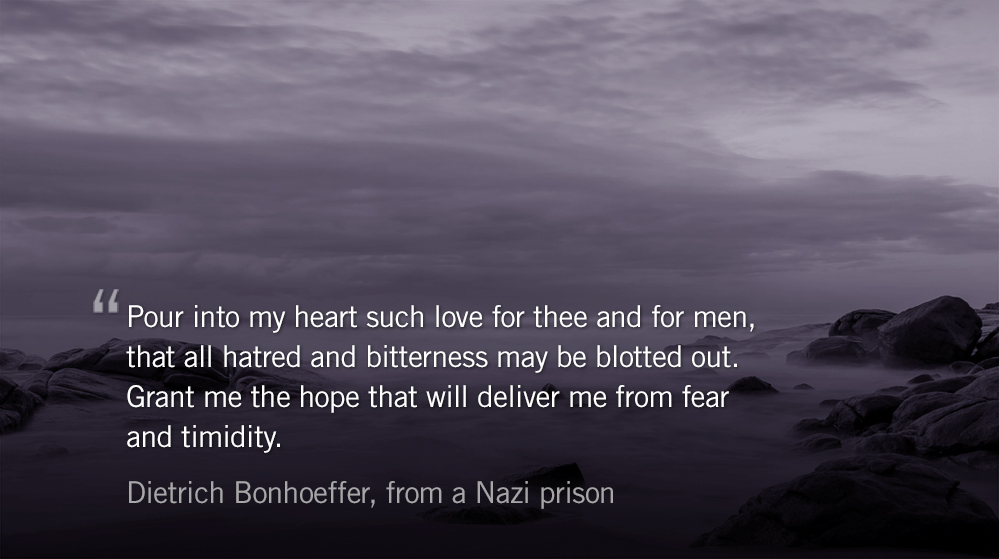And when he had seized him, he put him in prison, delivering him over to four squads of soldiers to guard him, intending after the Passover to bring him out to the people. — Acts 12.4
“I believe that God both can and will bring good out of evil,” Dietrich Bonhoeffer wrote from a Nazi prison in 1943. It was in the first months of his incarceration, and he believed he would be free by Christmas that year.
Adjusting to life in his cell, which offered little natural light, was extraordinarily difficult. Bonhoeffer, like the disciples in Acts, drew deeply from his faith:
I believe God will give us all the power we need to resist in all time of distress. But he never gives it in advance, lest we should rely upon ourselves and not on him alone. A faith as strong as this should allay all our fears for the future.
Though Bonhoeffer would not taste freedom in this world again (he would later be transferred to a concentration camp and hanged), his words of lament, faith, and hope stretch through all his correspondence. Never more-so than his prayer from Christmas, 1943:
O God, early in the morning do I cry unto you. Help me to pray, and to think only of you.In me there is darkness, but there is light in you. I am lonely, but you do not leave me. I am feeble in heart, but you do not leave me. I am restless, but there is peace with you. In me there is bitterness, but there is patience with you; your ways are beyond understanding, you know the way for me.O Holy Spirit, grant me the faith that will protect me from despair: deliver me from the lusts of the flesh. Pour into my heart such love for thee and for men, that all hatred and bitterness may be blotted out. Grant me the hope that will deliver me from fear and timidity.Chiefly do I remember all my loved ones, my fellow-prisoners, and all who in this house perform their hard service.Lord have mercy. Restore me to liberty and enable me so to live now, that I may answer before you and before the world. Lord, whatever this day may bring, your Name be praised. Amen.
The accounts of those who suffered before us can foster resilience in our suffering today. May our prayers be enlivened by the glory of God. May our Spirits rest in the peace of Christ. May our suffering never eclipse our view of the glory and sufficiency of God.
Today’s Reading
Nehemiah 2 (Listen – 3:42)
Acts 12 (Listen – 3:49)



